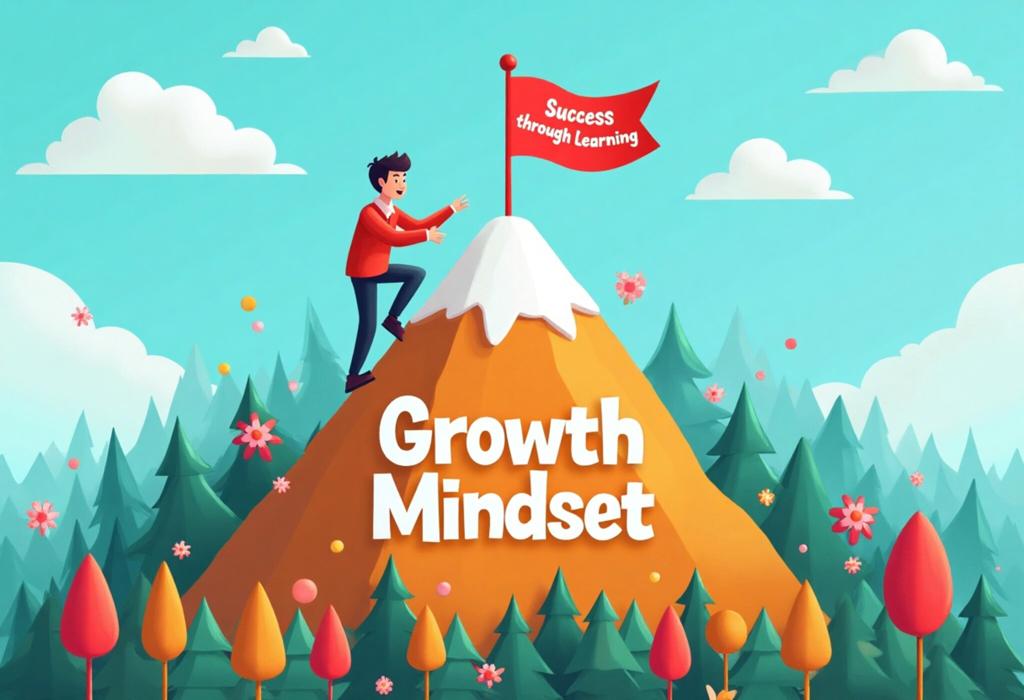For more details on this content, please review the step-by-step guide and frequently asked questions.
How to Develop a Growth Mindset

Step-by-Step Guide
Understand the Growth Mindset
Begin by learning about the concept of a growth mindset as developed by psychologist Carol Dweck. A growth mindset is the belief that abilities and intelligence can be developed through dedication and hard work. This contrasts with a fixed mindset, which assumes that abilities are static and unchangeable.
Identify Your Mindset
Reflect on your beliefs about your intelligence and abilities. Ask yourself questions such as 'Do I believe my skills can improve?' or 'Do I avoid challenges for fear of failure?' Acknowledge areas where you might have a fixed mindset and be open to change.
Embrace Challenges
Start seeking out challenges that push you outside of your comfort zone. View these challenges as opportunities to learn rather than obstacles. For instance, take on a difficult project at work, try a new sport, or learn a new skill.
Cultivate Resilience
When faced with setbacks, practice resilience. Instead of viewing failure as a reflection of your abilities, see it as a learning opportunity. Analyze what went wrong, what you can do differently next time, and keep moving forward.
Develop a Love for Learning
Engage in lifelong learning. Cultivate curiosity by reading books, attending seminars, or taking courses. Allow your interests to guide your learning paths. This will help stimulate your mind and reinforce the belief that you can always learn and grow.
Change Your Self-Talk
Practice positive self-talk by changing the way you speak to yourself about your abilities. Replace fixed-mindset statements like 'I can’t do this' with growth-mindset alternatives such as 'I can’t do this yet, but I can learn.' This shift will impact your motivation and approach to challenges.
Surround Yourself with Growth-Minded People
Surround yourself with individuals who share a growth mindset. Engaging with people who embrace growth encourages you to adopt a similar perspective. Join groups, teams, or communities that promote collaboration and mutual support in learning and improvement.
Set Learning Goals
Instead of setting performance goals (like getting an A in a class), set learning goals that focus on the process of mastery. For example, aim to understand a topic thoroughly rather than simply passing an exam. This will shift your focus from outcomes to the journey of learning.
Monitor Your Progress
Regularly assess your progress towards your goals. Reflect on what you've learned, how you've overcome challenges, and the skills you've developed. Keeping a journal can help you visualize your growth and maintain motivation.
Celebrate Effort and Progress
Recognize and celebrate your efforts, no matter how small. Acknowledge the hard work you've put in and the progress you've made. This reinforces the growth mindset by highlighting the value of perseverance and dedication.








